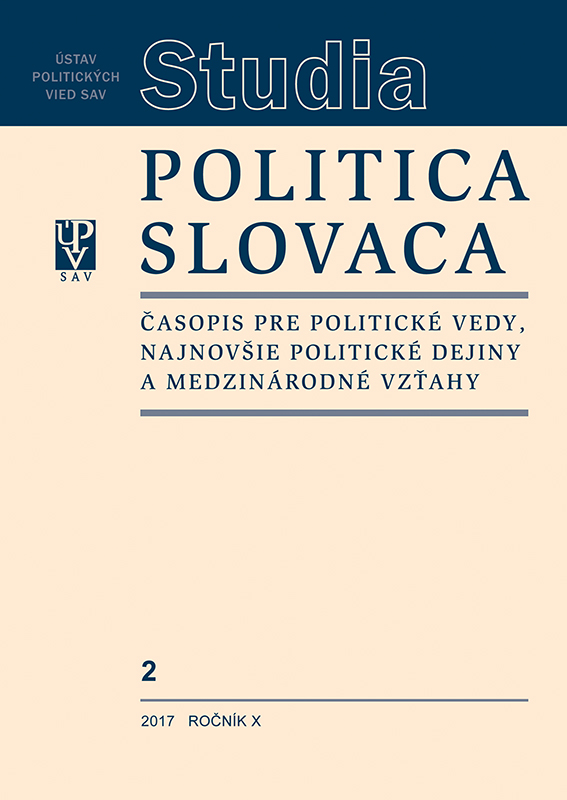Vojna a politika: politické súvislosti bitky pri Zborove (2. júla 1917)
War and politics: the political context of the Battle of Zborov (2 July 1917)
Author(s): Ferdinand VrábelSubject(s): Politics / Political Sciences, History
Published by: SAV - Slovenská akadémia vied - Ústav politických vied Slovenskej akadémie vied
Keywords: War and politics: the political context of the Battle of Zborov (2 July 1917)
Summary/Abstract: The Battle of Zborov of July 2, 1917 was the first joint operation of the Czechoslovak Volunteer Army in Russia - the Czechoslovak Shooting Brigade, which formed the basis of the Russian Legion. Although compared to other major combats on the western, eastern and southern fronts, this battle does not rank among the most influential battles in the military history of the First World War, it was of crucial importance in terms of forming the Czechoslovak Legions, or in terms of political assertion of the authority of the Czechoslovak resistance led by T. G. Masaryk, M. R. Štefánik and E. Beneš. This facilitated the formation of the Czechoslovak volunteer troops in Russia. Gradually, the Czechoslovak Army Corps, as well as the first regiments of the French Legion, and ultimately the Italian Legion in the west, came into being. From a political point of view, the Battle of Zborov proved to the allies that theCzechs and the Slovaks were able to fight for their freedom and for the creation of a common state with arms in their hands, and were even willing to sacrifice their lives in the struggle against the Central Powers. In the years of the first Czechoslovak Republic (1918 - 1938), the battle of Zborov became the basis of the fighting traditions of the Czechoslovak Army. However, following the German occupation of the Czech lands, and especially later, after the February of 1948, due to the victory of the Communist regime,these traditions were politically suppressed, their importance being largely pushed into the background through emphasizing the struggle at the Battle of Dukla Pass in autumn 1944. The grave of an unknown soldier from Zborov at the Old Town Hall in Prague was destroyed by the Germans and, following the liberation of the country, was replaced by the tomb of an unknown soldier from the Battle of Dukla Pass. It was only after 1989 that the Zborov Battle and its heroes were once again restored to their former glory and were returned their status in the history of the Slovaks and the Czechs in the struggle for freedom and for their own statehood.
Journal: Studia Politica Slovaca
- Issue Year: X/2017
- Issue No: 2
- Page Range: 48-66
- Page Count: 19
- Language: Slovak

